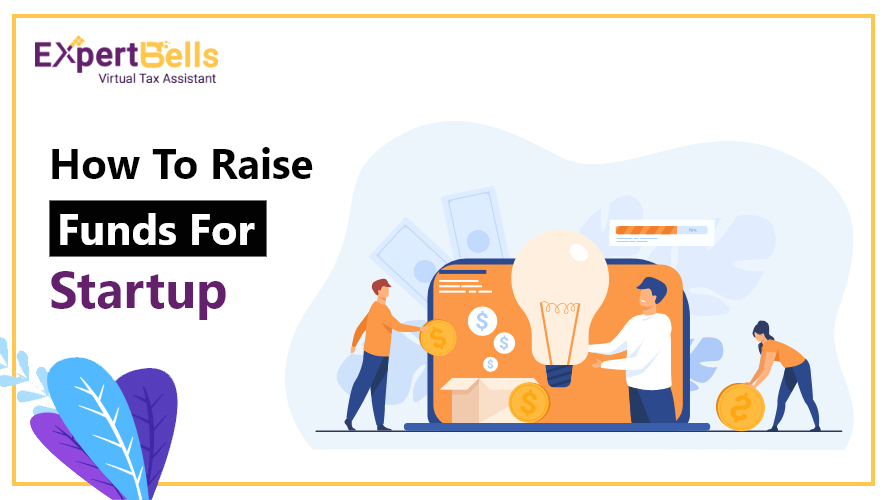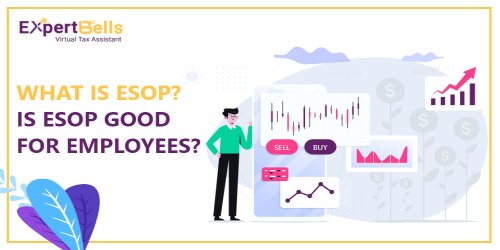How to Raise Funds for a StartUp

The startup culture is booming in India. Many youngsters are coming with their own unique ideas to start their own business.
But to run a business, you need money. Many a time, the capital brought in by the promoters is not sufficient to scale up the business.
The promoters then feel the need to have an additional capital in their business for product development, expansion, sales and marketing, infrastructure etc.
There are multiple sources of funding available for startup. The sources of funding depend upon the stage under which the startup is operating.
Funding at Initial Stage
It is a stage when a person is having an idea and is working towards giving life to that idea at the initial stage. At this stage, not much capital is required. The funding at initial stages may be in the following form:
-
Self-Financing
It is also known as bootstrapping. It means growing the business with little to no outside investments. It is usually runs on promoter’s own saving and earnings. This way, there is no pressure of paying back the funds and further the risk of diluting the stake in the business also mitigates.
-
Financing Through Family
This is also a common way of accumulating funds in the business. The risk of paying on time with high cost mitigates in this option.
-
Grants
Many business institutes and corporates are now a days conducting competitions for best business ideas. Startups can participate in the same and can have some support in the form of prize money distributed by them for developing their initial ideas.
Startups can know about the events and competitions by regularly visiting the startup website of government of India.
The link for the same can be found below:
https://www.startupindia.gov.in/content/sih/en/EventsCompetitions.html
Funding at Early Growth Phase
At this stage, the startup is ready with the prototype of its product or service offering. At this stage, startup needs to conduct trial activities for testing its product or service. It needs investment in human resources, technology, mentors, testors at this point of time.
In this phase, it can go for the following funding options:
-
Government Loans
Government is supporting the startup culture by providing them various loan options which are generally security free. The interest rates are also generally lower.
For knowing about all the government financing schemes for startups, one can visit the below official site of startup India:
https://www.startupindia.gov.in/content/sih/en/government-schemes.html
-
Incubators
Incubators are entities which has a specific purpose of helping the startups to grow their business. They generally help startup with their financing, legal assistance, office spaces and other value-added services.
There are many incubation centres, the details of which can be found on the official startup website of GOI:
https://www.startupindia.gov.in/content/sih/en/search.html?roles=Incubator&page=0
-
Angel Investor
This are the individuals who are ready to put their funds into the high potential startup with the objective to earn money on their investments.
There are networks of angel investors which can be found on:
https://www.startupindia.gov.in/content/sih/en/search.html?roles=Investor&page=0
-
Crowdfunding
It is an idea of raising money through large number of individuals who contributes relatively small amounts. People are using it for their startups as well as for donation in medical treatments poor people.
There are many crowdfunding platforms which charges some percentage-based fee and can help in raising the desired funds for you.
Funding at Growth Stage
At this stage, startups generally have launched their products or services in the market and working towards growing their customer base, revenues, scale of operation, geographical expansion etc.
Funding sources which can be utilised at this stage are:
-
Venture Capital Funds
Venture capitals are organised entities which helps startups for their funding needs specifically at a time when it reaches a sufficient size and credibility.
It invests in equity stake with the objective of earning return through business growth or sale of stake in future to institutional investors or in initial public offerings.
Venture capitals are generally looking for companies having huge potential to grow and are at initial stage of the business.
-
Bank Loans
Applying for startup business loans is quick, simple and hassle free in today’s time. Many financial institutions and banks have now enabled an option to apply online for the loans.
If your current business standing is stable and your balancesheet and P&L are strong enough, you can easily get the fundings from bank or NBFCs.
Since, at this stage startup is growing and planning to scale large through its commercial product already launched in the market. The funds raised at this stage will mostly be utilised in expansion, mergers and may be acquisitions too.
Funding at Exit Phase
The exit phase of startup refers to a phase when the investors who have put the money previously in the initial or growth stages get their money back.
It occurs when the investors decide to sell their stake in the company and exit.
Some of the common exit strategies in the startup are:
-
Launch an IPO
IPOs refers to initial public offering made to the public by the startups. In this, shares of the company are issued to general public. In IPOs some percentage of stake is also offered to institutional investors.
With the help of IPO, the current investors can sell their stake in the company to the public and exit their holdings.
-
Selling to a Large Company
Investors can also sell their stake in the company to an already established company who is interested in acquiring the company at a good price based on its growth potentials and stability.
The government of India is promoting as well as helping the startup financially at every stage by forming funds in crores. Department for Promotion of Industry and Internal Trade (DPIIT) is actively working towards enabling startup growth. The startup should use all the government available incentives to give a life to their brilliant ideas and help India in making the startup capital in the world.
Related Articles

Conversion of Private Limited Company into Public Limited Company
A private company is a business entity held under private ownership. The company may issue stock and have shareholders, but company's shares do not trade on public exchanges like BSE or NFT and are not issued through an initial public offering (IPO).
Leave A Reply
Your email address will not be published. Required fields are marked *
Most Popular Blogs


What is a Mentor? Definition, Purpose & More

Difference Between Mentor and Mentee

How To Find A Business Mentor: A Complete Guide





5 Comments
Lorem Ipsum is simply dummy text of the printing and typesetting industry. Lorem Ipsum has been the industry's standard dummy text ever since the 1500s, when an unknown printer took a galley of type and scrambled it to make a type specimen book. It has survived not only five centuries, but also the leap into electronic typesetting, remaining essentially unchanged. It was popularised in the 1960s with the release of Letraset sheets containing Lorem Ipsum passages, and more recently with desktop publishing software like Aldus PageMaker including versions of Lorem Ipsum.
Lorem Ipsum is simply dummy text of the printing and typesetting industry. Lorem Ipsum has been the industry's standard dummy text ever since the 1500s, when an unknown printer took a galley of type and scrambled it to make a type specimen book. It has survived not only five centuries, but also the leap into electronic typesetting, remaining essentially unchanged. It was popularised in the 1960s with the release of Letraset sheets containing Lorem Ipsum passages, and more recently with desktop publishing software like Aldus PageMaker including versions of Lorem Ipsum.
Lorem Ipsum is simply dummy text of the printing and typesetting industry. Lorem Ipsum has been the industry's standard dummy text ever since the 1500s, when an unknown printer took a galley of type and scrambled it to make a type specimen book. It has survived not only five centuries, but also the leap into electronic typesetting, remaining essentially unchanged. It was popularised in the 1960s with the release of Letraset sheets containing Lorem Ipsum passages, and more recently with desktop publishing software like Aldus PageMaker including versions of Lorem Ipsum.